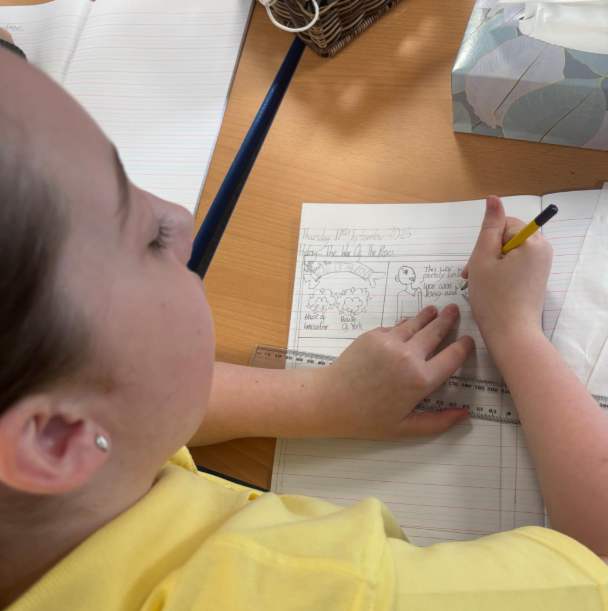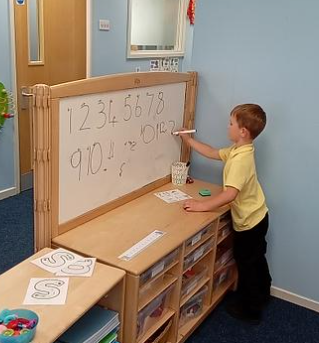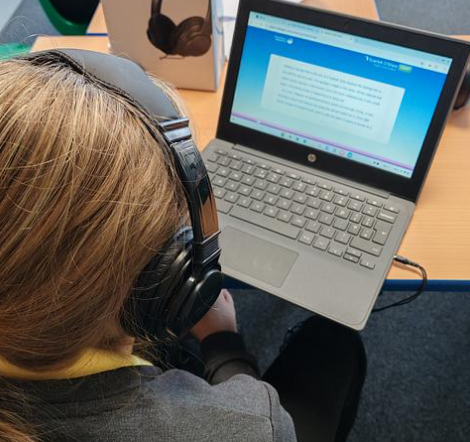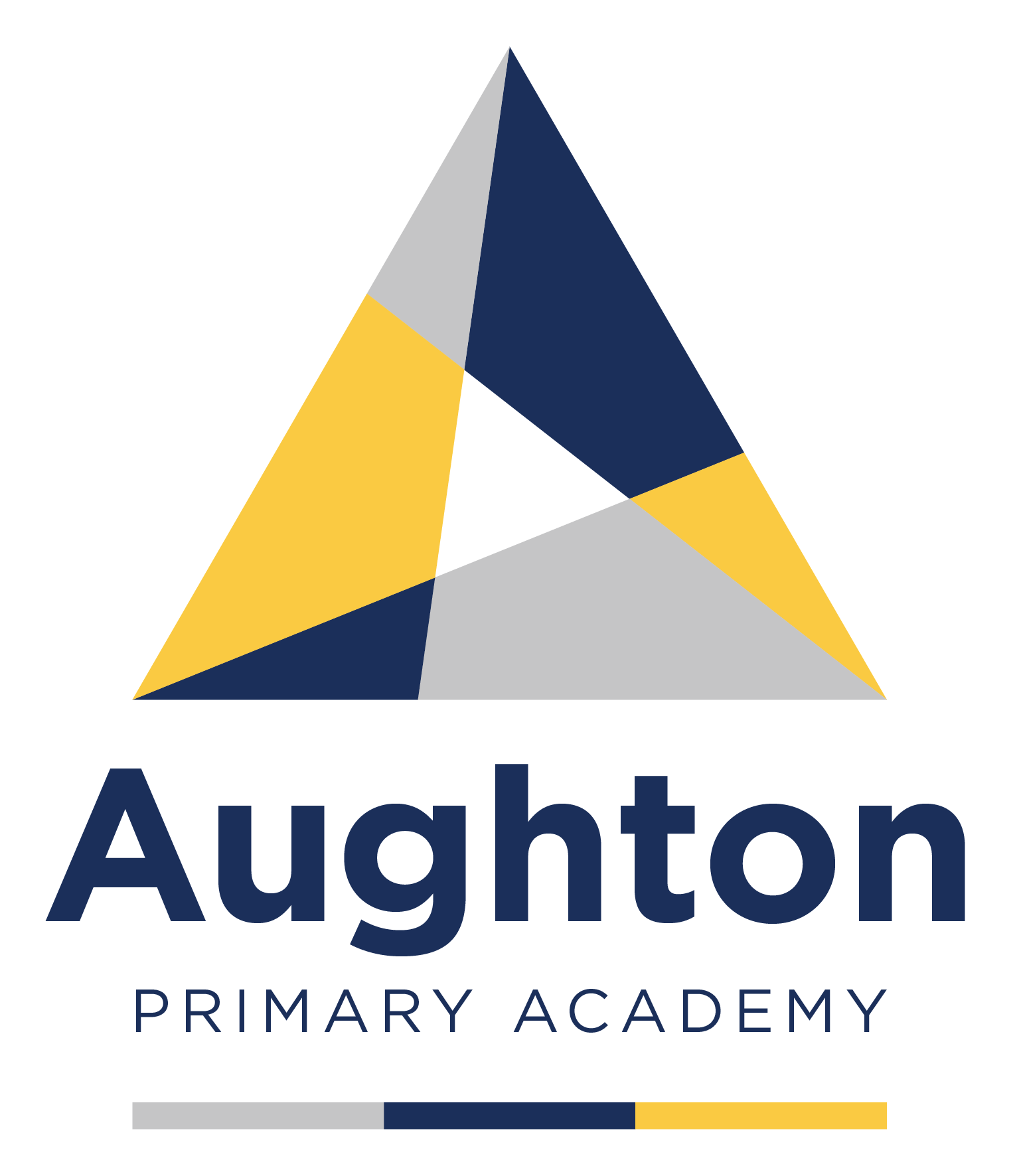The Aughton Curriculum
"The curriculum is broad and supports pupils’ academic achievement and their personal development. Staff ensure that the curriculum is ambitious. Pupils with SEND benefit from appropriate support to enable them to successfully access the curriculum alongside their peers. Leaders constantly reflect on, evaluate and improve the education on offer. They learn from, and share, expertise in the trust and beyond." Ofsted 2025




Our Vision for the Curriculum at Aughton Academy
We want children to develop a love for learning enabling them to become lifelong learners. We take pride in celebrating that we are ALL learners; and that every child can achieve their full potential. Through a rich and challenging curriculum, our aim is to make all aspects of teaching and learning exciting, engaging and motivating for ALL learners. We are aware that there may be some barriers children face when accessing learning, however, we want to make sure we can reduce or remove ethos barriers where we can through our adaptive practice.
Aughton strives to be an inclusive community where children grow, learn and achieve together, making sure our children feel that they belong. We value each child as an individual with a unique potential for learning. Their natural curiosity is fostered through a creative and ambitious curriculum that excites and challenges; and enables all to be independent, resilient and successful learners. Our curriculum nurtures and prepares children educationally, socially, morally and physically for their continuing learning journey, where doors will be opened rather than closed to future success. Supported by a culture of equality and aspiration we aim to remove disadvantage so that every child believes in themselves and can thrive. Through the curriculum children develop an understanding of citizenship and are empowered to make valuable contributions locally and globally.
Curriculum Design
Our curriculum has been designed with many colleagues collaboration as it continually evolves to take in the consideration the needs, characteristics and interests of our children; their prior learning and experiences; and the statutory curriculum (EYFS Statutory Framework and the NC). It is constantly evolving to ensure local, national and global contexts are topical; that approaches to ever-changing technologies are embraced; and current educational research and best practice informs pedagogy.
When designing the curriculum, the following factors influenced its development:
- teaching and learning, which is motivating and engaging for all learners of all abilities;
- progressive knowledge and skills from Foundation to Year 6.
- new knowledge and skills build on what has been taught before and sets the foundation for future learning;
- a wide range of subjects and opportunities for academic, technical, creative and sporting excellence;
- supporting a culture of resilience and positive mental health and wellbeing, where every child is safe, healthy, achieving, nurtured, active, respected, responsible and included;
- promoting children’s spiritual, moral, social and cultural development;
- strengthening children’s capacity as a learner and developing their independence, determination, and love of learning;
- equipping children with the knowledge and cultural capital they need for future success.
We aim to provide:
- A broad and balanced provision that promotes aspiration and ambition;
- A structured and progressive framework for the acquisition of knowledge and understanding, and the development of skills which leads to maximum progress for all children and long-term learning;
- Ensure that all children can read fluently and use these skills to access the whole curriculum;
- Ensure all children are literate and numerate, recognising that a focus on reading, writing, speaking and listening and mathematics is fundamental;
- High-quality learning experiences, which engage, excite and motivate children in the classroom and beyond;
- Enrichment experiences where learning and teaching can take place beyond the classroom and involve the wider community;
- Opportunities that promote pupils’ personal development and encourages them to extend their interests beyond school, for example, through a range of pupil selected after-school clubs;
- A wealth of relevant resources – in classrooms, outdoors, in the local community and the wider area, including visits and visitors;
- Development of children’s enterprise skills for them to grow into innovative, creative, strategic-thinking individuals who are equipped with skills that underpin employability;
- A self-reflective learning environment which enables children to know and understand what they are learning and why, and allow time to engage, reflect and review.
Effectively supported by qualified, highly-skilled and enthusiastic teachers, the curriculum aims to foster:
- A love of reading which is underpinned by high quality phonics teaching;
- An enjoyment of, and commitment to learning;
- Essential Reading, Writing, Speaking & Listening, and Maths skills they need to access learning across the curriculum;
- Attitudes, understanding and skills to become successful, resilient and independent learners (3B4ME)
- Curiosity and creativity;
- A culture of high aspiration of all pupils for future career options through a series of termly (Aspiration) assemblies;
- Resilience and promote children’s positive mental health and wellbeing;
- Positive learning and social behaviours through the teaching, development and understanding of ‘Core Christian Values’ and our ‘Fundamental British Values’;
- Children’s spiritual, moral, social and cultural development;
- Appreciation and concern for the environment;
- Effective, rigorous processes to monitor and assess progression in attainment and application of skills.
When our children leave us, as well as being ready for a KS3 curriculum, they have a wealth of transferrable skills which have been developed throughout their time at primary school in an inclusive and nurturing environment. Regular monitoring tells us that the children enjoy lessons and we believe this early love of learning stimulates children to become life-long learners. Our work on promoting social skills and character traits through our RHSE which include resilience, responsibility, risk-taking, collaboration, curiosity and empathy, enables children to become excellent role models and aspire to be the very best they can be. Developing their independence, motivation and attitudes as learners, and their sense of responsibility as future citizens is at the heart of all our teaching and learning.
We are proud that once the children from Aughton have moved on to secondary school, they have been supported through their transition; have been exposed to rich vocabulary and have high aspirations and self-belief all through the teaching of this broad and balanced curriculum.
Monitoring & Reviewing Impact of the curriculum:
Our children are assessed formatively within every lesson which helps the class teacher plan the next steps to be taught. Class teachers then use a summative assessment point at the end of each unit of work against key end point criteria which is based on subject specific skills and knowledge of the curriculum area.
We also track progress and attainment in Phonics, English and Maths termly at three formal assessment points. Additionally we track phonics half termly and use this information to set our phonics teaching groups. Progress and attainment is monitored termly by both subject and senior leaders with all children expected to make good progress across the academic. This is shared regularly with parents through Parents’ Evenings and within End-of-term Reports.
Subject Leadership
Subject leaders play an important part in the success of the curriculum by leading a regular programme of monitoring, evaluation and review and the celebration of good practice contributes to the ongoing commitment to evolve and improve further. All subject leaders are given access to training and CPD opportunities to keep developing their own subject knowledge, skills and understanding, so they can support curriculum development and the professional practice of colleagues.
The role of the subject lead is to:
- Provide a strategic lead and direction for the subject;
- Share their Intent, Implementation and Impact for their subject on the academy website via the subject rationale;
- Encourage staff to share examples of their curriculum subject in action on the academy website;
- Support and advise colleagues on issues related to the subject;
- Regularly speak to the children to check they are enjoying and acquiring the age related skills and knowledge of their subject area;
- Monitor pupils’ progress in that subject area;
- Provide efficient resource management for the subject;
- Keep up-to-date with developments in their key area of learning at both national and local levels;
- Monitor how their subjects are taught through monitoring the medium- and short-term planning ensuring that appropriate teaching strategies are used;
- Reviewing curriculum plans for their key areas ensuring there is full coverage of the National Curriculum and that progression is planned for and key end points in learning is identified;
- Review the way the subjects are taught in the school and plan for improvement linking to whole school priorities;
- Work collaboratively with trust wide subject leads to ensure sustainable improvement takes place;
- Judge standards within their subjects so they indicate the achievements of children at each key stage and indicate expectations of attainment;
- Evaluate teaching and learning, and assessment within their subjects;
- Have a secure awareness of the schemes of work for EYFS, KS1 and KS2;
- Report to the Principal on the strengths and areas for development of the subject and the strategies for improvement.
"Curriculum leaders are confident and knowledgeable about the subjects they lead. They have strengthened the curriculum, so that content is better sequenced and progressive to help pupils to remember more over time. Staff work alongside other leaders in the trust to develop a curriculum that is just right for the pupils here. Pupils gain a depth of knowledge in subjects, such as mathematics and geography, where the refined curriculum has had the chance to make a difference. Content is precise and progressively planned." Ofsted 2025
Find out more
We are always eager to share details of our curriculum with all stakeholders. Please email enquiries to info@aughtonacademy.org

